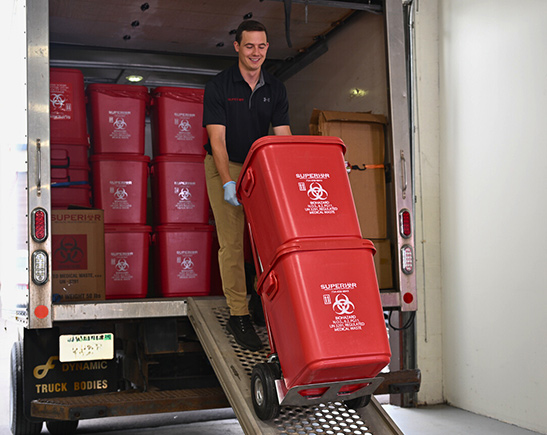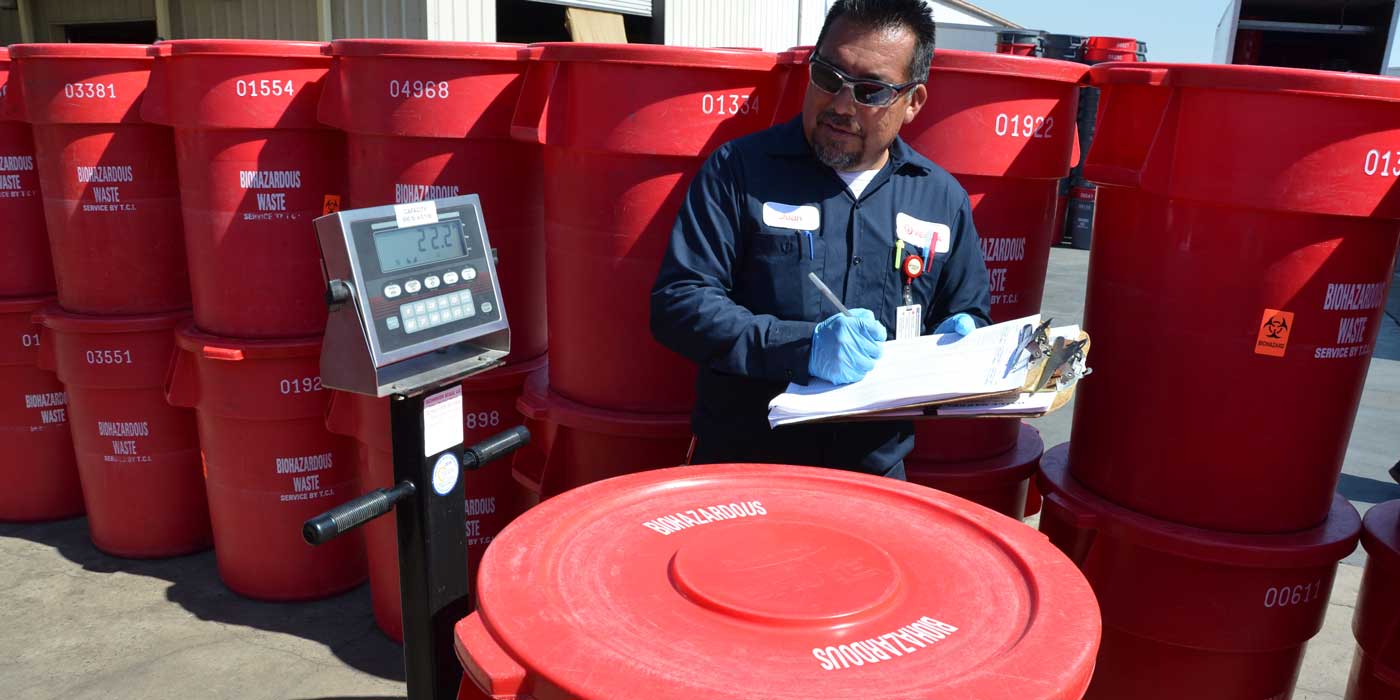Exploring Different Waste Disposal Options for a Cleaner Atmosphere
In the quest of a cleaner atmosphere, the management of waste disposal has actually arised as an important focal point for sustainable advancement. With a multitude of waste disposal choices available, ranging from standard landfill techniques to innovative waste-to-energy technologies, the option of just how we handle our waste has far-ranging effects for our planet's wellness.
Recycling Approaches
Implementing reliable reusing methods is important in minimizing waste and advertising sustainability in our atmosphere. Reusing entails the procedure of converting waste products into multiple-use challenge protect against unneeded disposal. One of one of the most common recycling approaches is material recuperation, where products like paper, glass, steel, and plastic are collected, sorted, and refined to develop new products. This procedure not only conserves natural sources however also lowers energy usage and greenhouse gas emissions connected with creating brand-new products from scratch.
One more important recycling approach is composting, which entails disintegrating organic waste like food scraps and yard trimmings into nutrient-rich soil. This procedure not only draws away organic waste from land fills but likewise produces a beneficial source for gardening and farming. Additionally, upcycling is an imaginative recycling approach that includes transforming old or discarded products right into products of better or worth. By incorporating these various recycling methods into our waste management practices, we can considerably lower our ecological impact and relocate in the direction of a much more lasting future.

Composting Techniques
Efficient waste management practices, such as recycling methods, pave the way for a cleaner environment, and currently, changing the emphasis to 'Composting Techniques', we check out lasting ways to break down natural waste for ecological benefit. medical waste removal service.
Composting is an all-natural process that transforms organic waste, like food scraps and yard trimmings, into a nutrient-rich soil change. The trick to effective composting hinges on producing the best balance of green products, such as vegetables and fruit scraps, and brown products, like dried out leaves and branches. These products disintegrate with the help of microorganisms, damaging down the waste right into valuable garden compost.
There are various composting methods offered to suit various requirements. Conventional yard composting entails layering organic products in a container or heap and on a regular basis transforming the blend to aerate it. Vermicomposting, on the various other hand, makes use of worms to damage down natural matter into garden compost (click here). For those with restricted area, interior composting systems supply a practical solution. By making use of composting strategies, we can lower the quantity of waste sent to land fills while creating an advantageous item for enriching dirt and supporting plant growth.
Incineration Cons and pros
Incineration, as a garbage disposal approach, offers both advantages and downsides that warrant cautious factor to consider in the realm of sustainable waste monitoring techniques. On the silver lining, incineration can significantly reduce the volume of waste, lessening the requirement for garbage dump room and possibly lowering greenhouse gas exhausts. Incineration additionally enables for the recovery of power through the generation of electricity or warm, contributing to source recuperation. The process can be made use of to damage unsafe substances, offering a safe technique for dealing with particular types of waste that might pose dangers to public wellness and the setting if left unattended.
Nonetheless, there are remarkable disadvantages to incineration. One significant concern is the possible release of dangerous contaminants into the air, such as dioxins, hefty steels, and particle matter, which can have adverse results on human wellness and the atmosphere. In addition, the high initial financial investment and functional costs of incineration facilities present financial difficulties, making it a less cost-effective alternative compared to other waste management methods. Cautious tracking and guideline are important to reduce these negative influences and make best use of the advantages of incineration as component of a comprehensive waste management method.
Landfill Administration Techniques
Land fills play read the full info here a crucial duty in waste administration and environmental preservation by offering a control system for the disposal of strong waste materials. Effective garbage dump management techniques are vital to alleviate environmental influences and ensure the lasting sustainability of these garbage disposal sites. One crucial technique appertains waste compaction to maximize making use of offered room within the garbage dump (click here). By condensing the waste, the quantity is minimized, permitting more waste to be suited with time.
Moreover, the application of daily cover methods is essential in minimizing smells, avoiding clutter, and reducing the attraction of bugs. Covering the disposed waste at the end of each day assists to contain odors and avoid possible environmental contamination. Additionally, the tracking of land fill gas emissions and leachate degrees is vital in making sure that ecological standards are satisfied and that any kind of potential dangers to bordering ecosystems are minimized.

Waste-to-Energy Technologies
One of the ingenious strategies to lose administration involves using Waste-to-Energy technologies to transform strong waste into usable energy resources. Waste-to-Energy (WtE) technologies encompass a series of procedures that intend to extract energy from waste materials through thermal, chemical, or biological means. This conversion procedure not just minimizes the quantity of waste that winds up in land fills however likewise generates valuable power sources such as power, warmth, or biofuels.
There are numerous techniques of Waste-to-Energy conversion, consisting of gasification, incineration, and pyrolysis. Incineration entails shedding waste at heats to create warmth and electricity. Gasification transforms waste into a syngas, which can be utilized for power generation or chemical manufacturing. Pyrolysis breaks down natural products making use of high temperature levels in the absence of oxygen, producing bio-oil, gas, and char.
Carrying out Waste-to-Energy technologies can aid alleviate environmental concerns connected with standard garbage disposal methods while at the same time providing an eco-friendly energy source. Nevertheless, careful factor to consider must be provided to emissions control and making certain the sustainability of feedstock supplies for these modern technologies to be really beneficial for a cleaner atmosphere.

Conclusion
Finally, discovering numerous garbage disposal choices such as reusing, composting, incineration, landfill management, and waste-to-energy modern technologies is important for advertising a cleaner setting - click here. Each approach has its own advantages and difficulties, however by utilizing a combination of these techniques, we can function in the direction of decreasing the quantity of waste that winds up in land fills and ultimately contribute to an extra lasting future for generations to come
With a plethora of waste disposal options readily available, ranging from conventional garbage dump techniques to cutting-edge waste-to-energy technologies, the option of exactly how we handle our waste has significant effects for our earth's health. medical waste removal service.Incineration, as a waste disposal technique, presents both advantages and drawbacks that merit careful consideration in the realm of sustainable waste management methods.Garbage dumps play a vital function in waste administration and ecological conservation by supplying a control system for the disposal of solid waste materials. By compacting the waste, the quantity is lowered, permitting for even more waste to be accommodated over time
One of the cutting-edge strategies to throw away administration involves taking advantage of Waste-to-Energy innovations to convert strong waste into useful power resources.
 Tony Danza Then & Now!
Tony Danza Then & Now! Devin Ratray Then & Now!
Devin Ratray Then & Now! Barbi Benton Then & Now!
Barbi Benton Then & Now! Bill Murray Then & Now!
Bill Murray Then & Now! Richard Dean Anderson Then & Now!
Richard Dean Anderson Then & Now!